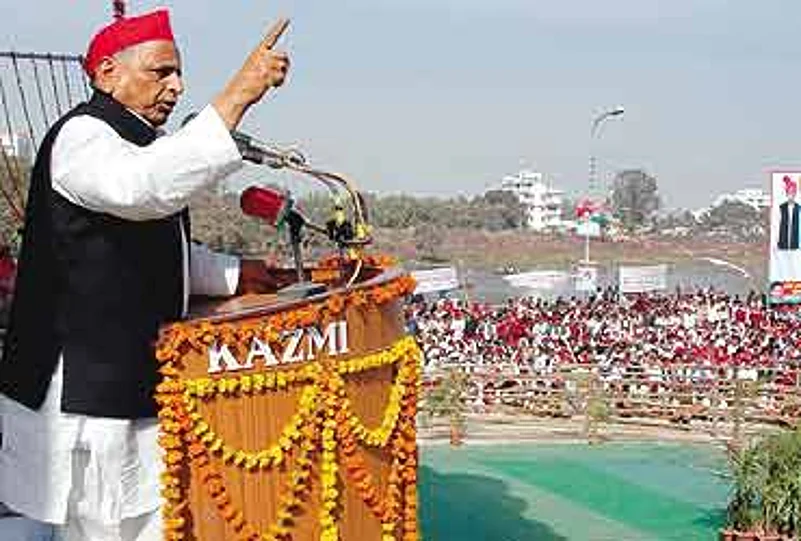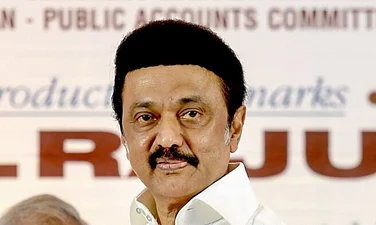
It's come to a situation where a three-time SP MP admits ruefully, "The upper-caste allergy for Mayawati is gone. Now all the upper castes care about is increasing their own representation in the assembly or LS so that they can once again influence decisions." Perhaps why they are more than willing to forget the belligerence of "Tilak, tarazu aur talwar, inko maaro joote chaar" and tune into the more gentle "Yeh haathi nahin Ganesh hain, Brahma, Vishnu, Mahesh hain."
But is there a sociological reason beyond the desire for the rule of law and an administration that works? A senior UP cadre IAS officer says, "The Brahmins and Banias at the top end and the Dalits at the bottom are coming together to take on OBC—specifically Yadav —criminalisation. There are criminals among the Muslims and the Thakurs but they are more easily taken care of, the first because of a general mood against the community and the second because they are divided. This is why Mayawati is on the rise." To convert that into a majority in 2007, he adds, "the only option is to join hands with the Congress... that will consolidate the Muslim vote in its favour. Right now, the BSP remains the second choice of the community." An alliance looks remote, but already Mayawati has made friendly gestures, like saying the party will not field a candidate against Sonia Gandhi in Rae Bareli.
Whether Mayawati makes it in 2007 on her own remains to be seen, but today she is clearly the frontrunner. For her supporters—both traditional and newly acquired—tales of disproportionate assets and corruption cut no ice for they don't see it as affecting the common man. And anyway, it's a reality that only the fat cats who have the money can contest elections. The only irony here is that if Mayawati does win next year's elections, it will be on the good governance ticket.






















